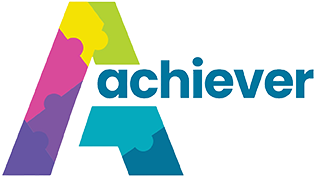

ASD, autism spectrum disorder, is a neurodevelopmental condition characterized by difficulties in social interaction and communication. Diagnosis is typically made when an individual is six years old or older; diagnosis can be complicated when symptoms are mild due to age-appropriate expectations of behavior. A formal assessment by a professional, such as an autism specialist or pediatrician is recommended to help determine whether symptoms are mild enough to be considered within the range of typical development.
What does ASD look like?
Symptoms of ASD can vary widely between individuals. Children may find it difficult to engage in pretend play and other social interactions, or they may not show an interest in other people at all. Children who are non-verbal or have low functional communication may be unable to communicate their wants and needs. Individuals with ASD also often struggle with regulating emotions, even if they can recognize what emotions are appropriate for a situation. It is important to note that while many individuals with ASD excel in some skills and lag behind in others, this does not mean that skill sets fall into the "low," "medium," and "high" categories; rather, they vary greatly on a case-by-case basis within each individual due to the nature of the condition.
What causes ASD?
The exact cause of autism spectrum disorder is unknown; however, certain risk factors can increase an individual's chance of developing autism. These risk factors can include certain medications taken during pregnancy, exposure to environmental pollutants such as pesticides and lead while in the womb, low birth weight/premature birth, and genetic abnormalities.
How is a formal assessment done to determine if someone has ASD?
The most reliable way to diagnose autism spectrum disorder is through a formal assessment. This type of in-depth evaluation can be done by either an autism specialist or pediatrician, and it usually takes between two to four hours. During the evaluation, parents are asked questions about their child's development over time, while teachers are given specific tasks related to different areas of skills so they can compare how well their student functions at school compared with how they do in other environments. The evaluator will also observe the child during certain standardized social interactions in order to better understand their behavior. All of this information is then used together to help identify any developmental delays that may indicate autism spectrum disorder. Because ASD affects each individual differently, autism assessments are tailored to each child.
The goals of an ASD assessment
What should you do if you suspect your child has ASD?
If you believe that your child is struggling with social skills or showing signs of autism spectrum disorder, it's important to express your concerns to their pediatrician. During the appointment, it may be helpful to write down specific examples of which behaviors you're concerned about for reference. Together, you and the doctor will determine whether an official assessment should be done by a specialist, typically someone who has experience working with autistic children. Since many children show signs of ASD at an early age (as young as 2 years old), starting intervention services soon after diagnosis can greatly improve their chances of success in school.
If necessary, what are some other reasons why I would want to get my child formally assessed by a professional?
What if my ASD assessment contradicts what I know about my child?
If there are disagreements regarding a diagnosis of autism spectrum disorder or an educational plan for your child, it's important to review all of the assessments and recommendations. In many cases, you may want to meet with an educational advocate who can help you make sense of these often complicated diagnoses and services. It may also be helpful to seek out a second opinion from another specialist who has experience working with autistic children. With the right support and strategies put into place, your child with ASD can truly achieve amazing things.
What is the importance of a formal assessment?
A formal ASD assessment is one of the first steps in determining how well your child can succeed academically. It's an opportunity to understand better how specific strengths and struggles are related to cognitive, social, emotional, communication, or sensory processing abilities. This information can help determine if an education plan tailored specifically for your child will be effective and the next step to ensure they have access to everything needed for success at school. Additionally, knowing what your child is capable of can be crucial in determining where they start and how far they're willing to go.
Treatments for ASD
While there is currently no cure for ASD, treatment options are available to help individuals better cope with the condition. A special education program designed specifically for a child's needs can be a great way to give a struggling student extra support at school. Many children with ASD thrive when given educational opportunities that allow them to communicate their knowledge or skillset differently, such as through sign language or typing on a keyboard rather than verbally speaking. In addition to educational services, speech-language therapy is frequently recommended to help with communication and social skills. For many children, a combination of educational support and speech-language therapy can make all the difference in their ability to function normally in social situations.
In some cases, children with ASD may benefit from behavioral treatments as well. Applied behavior analysis (ABA) therapy is a common approach to treating autism, which focuses on rewarding positive behaviors and minimizing negative ones. ABA is often combined with other forms of therapy to explore underlying problems that can't be addressed with a surface-level treatment plan. Pairing aba therapy with educational support can be an effective way to help children reach their full potential academically. Numerous Aba therapy agencies can help with Aba home care, Aba services at a school, a medical facility, or a daycare.
Therapeutic relationships are essential for children with ASD, especially during the assessment and educational planning stages. A play therapist can establish a trusting relationship through fun interaction and communication exercises. This can be a great way to discover the root of a child's sensory sensitivities, anxiety, or other social struggles that may otherwise go unnoticed. Combining the therapeutic relationship and occupational therapy sessions can also help provide children with deeper insight into their own abilities, struggles, and emotions.
If you suspect that your child has ASD, it's important to schedule a formal assessment. If you have questions, don't hesitate to contact a trusted educational advocate or professional from an agency specializing in autism spectrum disorder like Affinity autism services. They can help make sense of the diagnosis and determine the next steps to get your child on the path to success. If you are interested in aba therapy, Achievement therapy services specialize on effective treatment for children on the spectrum. They are an Applied behavior analysis (ABA) therapy agency offering in-home aba therapy, and Insurance accepted Applied behavior analysis (ABA) therapy.
+ Nassau County & 5 Towns | 516.229.1194
+ Edison, New Jersey | 475.325.0276
+ Forest Hills, Queens | 347.342.1406
+ West Hempstead | 516.229.1194
+ Malverne, New York | 516.229.1194
+ Danbury, Connecticut
+ Chadds Ford, Pennsylvania
Mon - Fri 9AM - 5PM
Follow Us
Boutique agency since 2015
Achievement Behavior Services is a boutique agency providing quality individualized applied behavior analysis (ABA) therapy to children on the autism spectrum. Established in 2015 ABS is licensed and trained ABA therapists implement behavioral therapy methods in the child’s environment to improve social, behavioral and adaptive skills.
+ In-home aba services
+ Parent Training
+ Initial Assessment
+ BCBA Supervision
+ Social Skills Groups
+ BIP (Behavior Intervention Plans)
+ School Consultations
+ CE Credits
+ Direct Care
+ Family Training
+ 5 Boroughs | Staten Island, Brooklyn, Queens, Manhattan, The Bronx
+ Westchester | Yonkers
+ Rockland County | Monsey
+ Long Island | Nassau County & Suffolk County
+ New Jersey | Bergen County, Union County, Hudson County, Essex County, North Jersey, Central & Southern Jersey
+ Corporate Office | Malverne, NY
